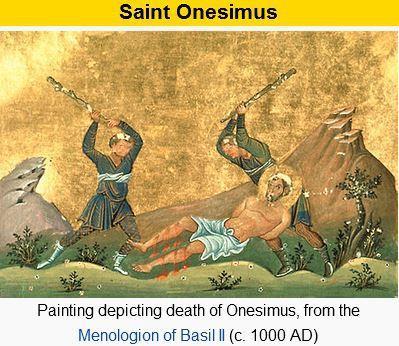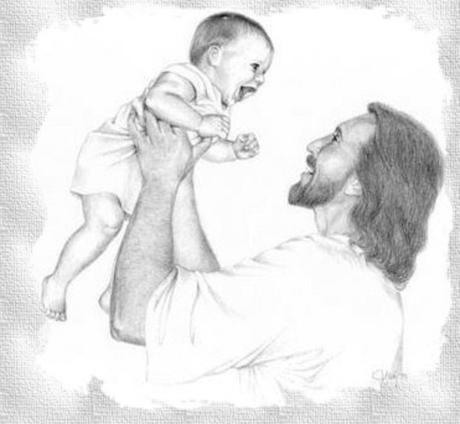Philemon 9-17
I, Paul, an old man,
and now also a prisoner for Christ Jesus,
urge you on behalf of my child Onesimus,
whose father I have become in my imprisonment;
I am sending him, that is, my own heart, back to you.
I should have liked to retain him for myself,
so that he might serve me on your behalf
in my imprisonment for the gospel,
but I did not want to do anything without your consent,
so that the good you do might not be forced but voluntary.
Perhaps this is why he was away from you for a while,
that you might have him back forever,
no longer as a slave
but more than a slave, a brother,
beloved especially to me, but even more so to you,
as a man and in the Lord.
So if you regard me as a partner, welcome him as you would me.
The above reading from St. Paul’s letter to Philemon is a powerful statement against both slavery as well as the institution of goverment-enforced welfare.
The letter was written by St. Paul during an imprisonment, believed to be in Rome between A.D. 61 and 63. The letter concerns Onesimus (pronounced “o-NEH-sih-muhs”), a slave who had run away from his master, Philemon (pronounced “fih-LEE-muhn”), an early Christian in Asia Minor who was a slave-owner and a minister of the house church that met in his home.
In their imprisonment, Paul converted Onesimus to Christ, then sends him back to his master, Philemon, with a private letter appealing on behalf of Onesimus, asking that he be welcomed not as a slave but as an equal — a brother in Christ.
By presenting Onesimus as “brother, beloved…to me, but even more so to you,” Paul voiced an idea that was revolutionary for, at the time, human slavery was an accepted institution that the Christian communities of the first century were in no position to challenge.
It is no wonder that the abolition movement that began in the 18th century in the UK and the US was pioneered, led, and staffed by Christians — a fact that is little known or publicized today.
Both Philemon and Onesimus were martyred at Colossaei during the first general persecution in the reign of Nero, and are regarded as saints by several Christian churches. (Note: The word “saint” simply means “holy”; the title of “saint” is honorific, a sign of our respect.) For the martyrdom of Paul, see “St. Paul, whom Christ struck blind”.

As for welfare, an institution that has become colossal and immovable in our time in the form of the bloated welfare state, there can be no more powerful statement against it than Paul’s words in his letter to Philemon:
“so that the good you do might not be forced but voluntary”
Charity is voluntary, which studies show conservatives give more in both money and services than liberals.
But welfare, the revenue for which is extracted via confiscatory taxation, is not charity because it is enforced, and an involuntary “good” is no longer a good.
And yet “liberal” Christians precisely support this enforced charity — an oxymoron — in the name of “social justice”. But then those same “liberal” Christians also are “pro-choice,” a euphemism for government-sanctioned abortion — the lawful killing of unborn and entirely innocent human beings, for whom Christ weeps.
 May the peace and love of Jesus Christ our Lord be with you,
May the peace and love of Jesus Christ our Lord be with you,
~Eowyn

